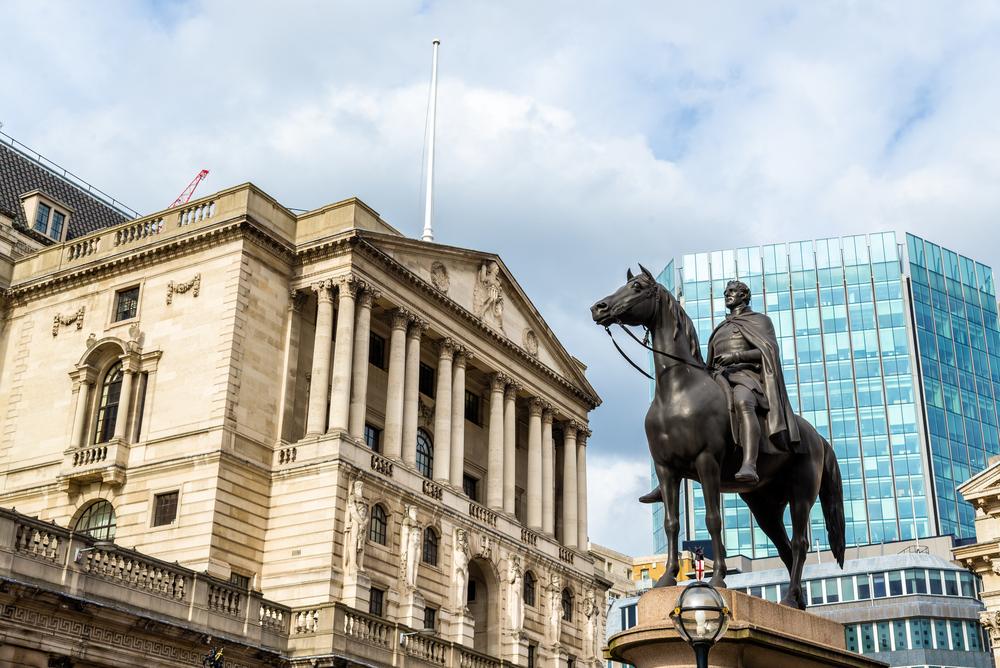Chancellor Rishi Sunak has brought in a raft of green finance initiatives in an effort to de-carbonise the UK economy. However, in a letter sent to the Chancellor, think-tanks, academics, researchers and financiers have outlined their concerns, with all signatories agreeing that Sunak’s new measures rely too heavily on market mechanisms.
The Chancellor’s green finance plans include: making Taskforce on Climate-related Financial Disclosures aligned disclosures mandatory by 2025; the next Bank of England stress test taking place next June; and the FCA introducing new rules requiring premium listed companies to disclose climate risk consistent with the recommendations of the Taskforce on Climate-related Financial Disclosures.
Following criticism and counter-proposals by Labour last week, today the Chancellor and BoE Governor, Andrew Bailey, have been sent a letter co-ordinated by the New Economics Foundation and Positive Money. The letter calls for the government to update the central bank’s mandate, so it is able to support a ‘fair green transition’.
The letter has 120 signatories, including former Bank of England Monetary Policy Committee member Willem Buiter, former White House adviser Nouriel Roubini and the founding director of the UCL Institute for Innovation and Public Purpose, Mariana Mazzucato, among other academics and civil society leaders.
The letter argues that the Treasury and Bank of England’s green finance initiatives – the disclosures and stress tests – are ‘insufficient’, and it warns that reliance on these policies amounts to no more than “leaving it to markets to self-regulate when it comes to climate risk”.
It also argues that the approach being used applies the same logic applied during the 2008 crash and the subsequent policy response. It adds that there has been a continued mismatch between rhetoric and action on the BoE’s part, which it says has a corporate bond portfolio “currently aligned with this 3.5 degrees pathway, well above the Paris Agreement goals”.
Commenting on the measures currently being proposed, Positive Money’s Director, Fran Boait, said: “The Bank of England could be doing much more to support the green transition, but is held back by a restrictive mandate that is no longer fit for purpose. The Chancellor must expand the Bank’s remit at the earliest opportunity, to enable it to take obvious and urgent actions like ensuring its quantitative easing programme is aligned with the government’s climate objectives.”
Responding to these apparent failures, signatories offer four suggestions to improve Sunak’s green finance push. First, the letter suggest that the BoE should encourage private financial flows towards green, job-creating projects to support the economic recovery and the net zero transition. Second, it should climate-related financial risks into its collateral framework and asset purchases.
Third, the Treasury should permit the Bank to help capitalise a new Green Investment Bank (GIB) to support lending to sustainable projects. On the latter, signatories suggest that the BoE could reinvest the maturing proceeds of the Covid Corporate Financing Facility into a GIB, which wouldn’t increase the net debt burden of the government.
Fourth, the letter calls for green taxonomy to not just classify green activities but also carbon-intensive and other unsustainable activities. Through a transparent and consultative process – comprising perspectives from across civil society and academia – the UK could avoid definitions of what is considered ‘green’ from being shaped by industry lobbyists behind closed doors.
Concluding, the New Economics Foundation’s Chief Executive, Miatta Fahnbulleh, added: “The UK needs to be a global leader in green finance, but the measures announced lack ambition – and place too much faith in the efficiency and self-regulation of financial markets. The incalculable human cost that came with the 2008 financial crisis was a crude reminder of what happens when financial markets are left to their own devices. A business as usual approach is simply not an option for the people and places left behind and hardest hit by the last recession.”
“To build back better we need a financial system that provides the vital patient strategic finance to support jobs, businesses and local communities in line with a low carbon transition. Changing the mandate of the Bank of England will help reshape our financial system and harness its benefits to support a green and socially just recovery.”




